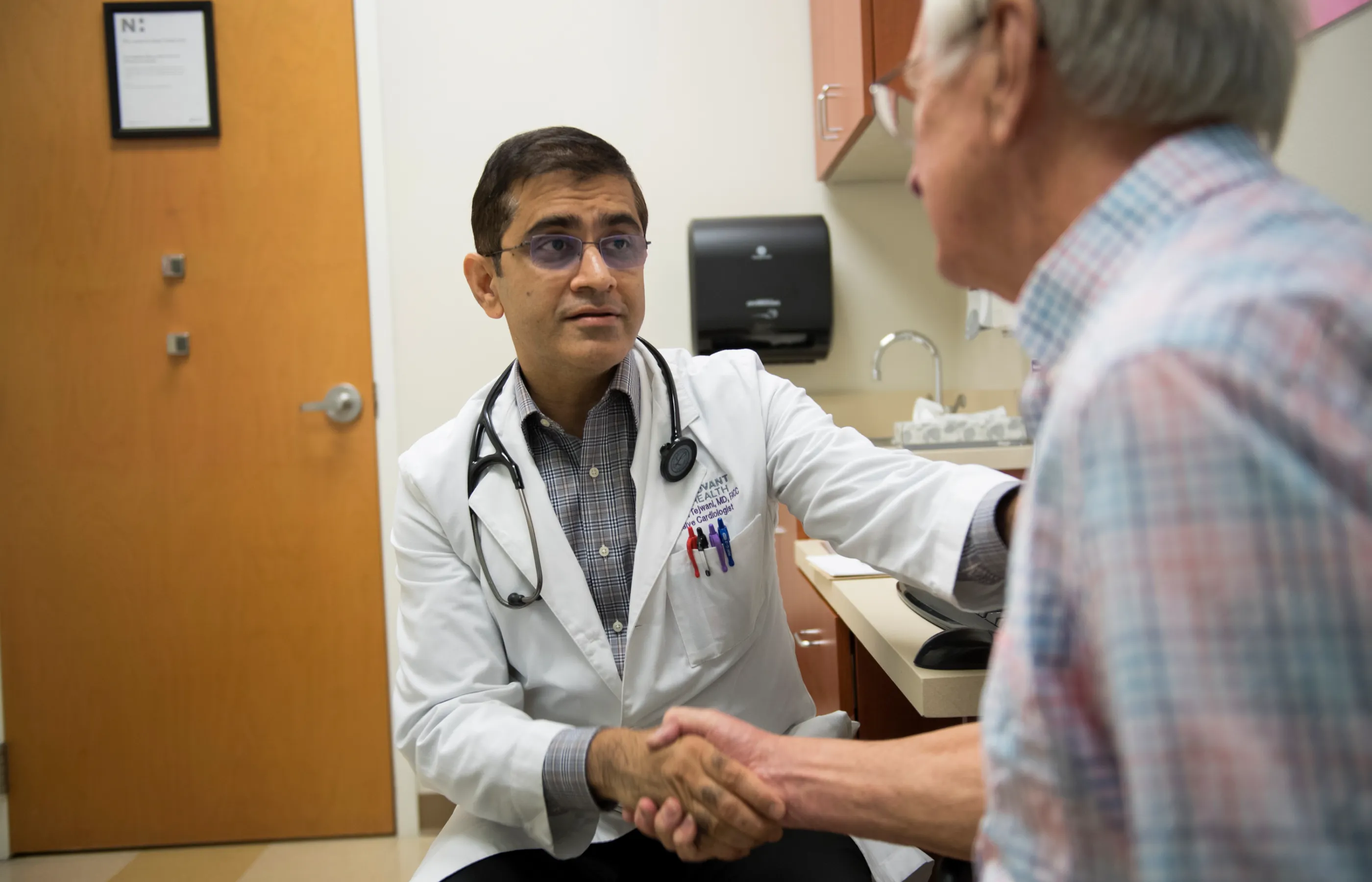Heart Attack
When every moment counts
Novant Health is has been recognized by the American Heart Association for helping raise the standard for heart attack treatment. If you experience chest pain and other symptoms of a heart attack, always call 911 immediately.
Take the First Step
If you believe you are at risk for heart disease, it’s time to take the first step in improving your cardiac health. Visit your primary care provider to discuss your heart health to see if you need a referral to one of our heart specialists. If you do not have a primary care provider, follow the steps below to get started:
Step 1:
Visit your Primary
Care Provider
Step 2:
Discuss your
concerns
Step 3:
Your provider gives
a referral
Step 4:
Choose the right
specialist for you
Heart Attack Treatments

Know the signs of a heart attack
The most common heart attack signs are:
- Sensation in the center of the chest that lasts more than a few minutes or goes away and returns; often described as an uncomfortable pressure, fullness, squeezing or pain
- Chest pain that spreads to the shoulders, neck or arms
- Chest discomfort paired with light-headedness, fainting, sweating, nausea or shortness of breath
Less common heart attack signs include unusual chest, stomach or abdominal pain and any of the following without accompanying chest pain:
- Heart palpitations, cold sweat or paleness
- Nausea or dizziness
- Shortness of breath and difficulty breathing
- Unexplained anxiety, weakness or fatigue
Call 911 immediately
Because a heart attack is a life-threatening event, knowing when to call 911 for chest pain is critical. If you suspect that you or someone you're with is having a heart attack, call 911 immediately.
Take action to help
While waiting for emergency help to arrive, there are steps you can take, including:
- Check for responsiveness. This can be as simple as tapping the person's shoulder and shouting, "Are you okay?" Also, check to see if they're breathing.
- Perform cardiopulmonary resuscitation (CPR). If you haven't completed CPR training, medical experts recommend that you avoid attempting rescue breathing and focus on chest compressions.
- Use an automated external defibrillator (AED). If an AED is close at hand, use it immediately. Turn the device on and follow the step-by-step instructions.
